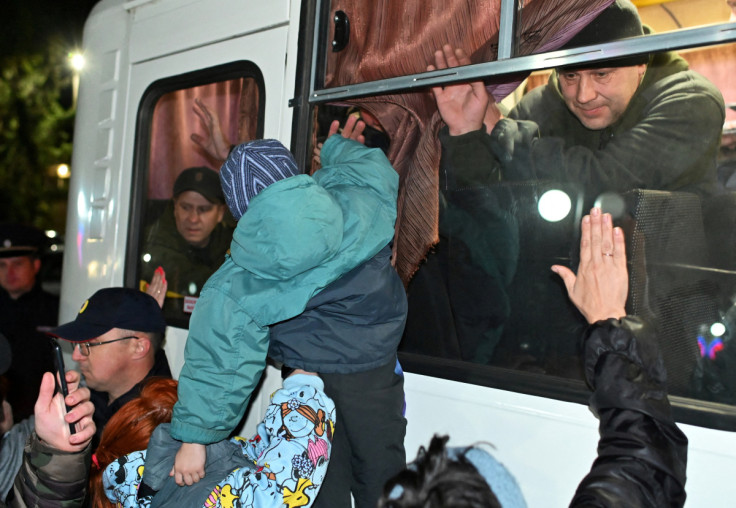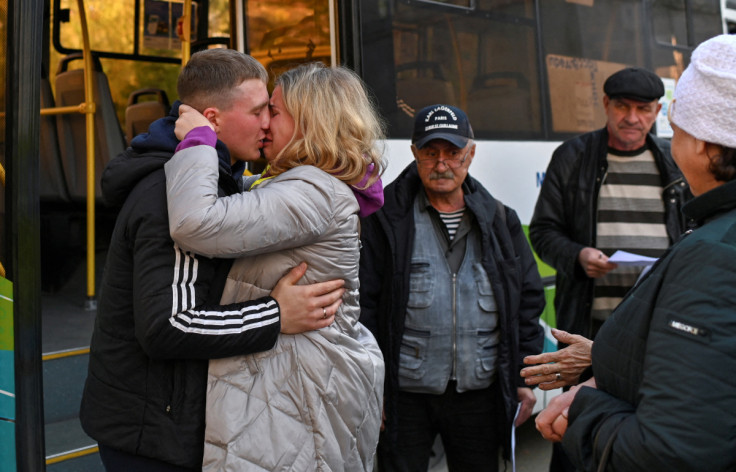Analysis-Russia's Mobilisation May Stymie Economic Recovery

Already blighted by Western sanctions, Russia's economy now faces a more self-inflicted blow, with President Vladimir Putin's military mobilisation drive threatening to undermine productivity, demand and recovery.
With hundreds of thousands of men either being conscripted to the army or fleeing, investment-stifling uncertainty is again weighing on the economy, which had been standing up better than first expected to Western reprisals over the Ukraine conflict.
"The mobilisation declaration and the strengthening of geopolitical and sanctions risk are launching the second wave of the economic crisis," said Evgeny Suvorov, an economist at CentroCreditBank, expecting Russia's economic contraction to worsen in the final months of the year.
Putin last Thursday said retail sales fell in the final week of September and ordered his government to find ways to stimulate consumer demand. But there was no acknowledgement of any link to his sudden partial mobilisation announcement on Sept. 21.
The central bank on Tuesday said economic activity in Russia slowed significantly at the end of September.
Household spending on non-food products for the week from Sept. 19-25 fell by 12.7% year-on-year, according to data from SberIndex, the statistics unit of dominant Russian lender Sberbank, compared with a 9.2% decline the week before.
From Sept. 26 to Oct. 2, spending dropped 12.2%.
"We expect to see the decline in retail sales return to the double-digit zone in the coming months, above all in expensive and non-food goods," said Renaissance Capital economist Sofya Donets. In monthly terms, retail sales only reached a double-digit decline in May.
LOST 'HUMAN CAPITAL'
Russian officials have steadily improved forecasts since the economy ministry in April predicted a GDP contraction of over 12% this year, as higher oil prices and a widening current account surplus - the difference in value between exports and imports - have helped Russia limit the fallout from sanctions.
Analysts polled by Reuters late last month expected GDP to contract 3.2% this year, compared with the economy ministry's forecast of a 2.9% decline. Next year analysts expect another 2.5% drop in GDP, far more pessimistic than the 0.8% drop forecast by the ministry.
And at a time when Moscow is intensifying its military campaign in Ukraine, the relative recovery may now be in jeopardy.
"The main consequence of mobilisation is the loss of human capital," said veteran economist Natalya Zubarevich. "Wild growth in the uncertainty of everything and scariest of all - a lack of understanding as to when there will be light at the end of the tunnel."
The ultimate duration and size of the mobilisation is not yet known in the vast nation of about 145 million people. Russian media have estimated that 700,000 people have fled since mobilisation was announced, though the Kremlin denies that.
Dmitry Polevoy, head of investment at Locko Invest, estimated that 0.4%-1.4% of Russia's workforce have fled or are among the 300,000 extra men to be called up to fight.
Polevoy said mobilisation was a blow in terms of Russia's demography, the labour market and investment climate at a time when access to modern equipment and technology is waning.
"It was possible to count exclusively on human capital to pull the economy through, but now a part of this human capital of productive age is subject to mobilisation and another part is leaving," Polevoy said.
The chaotic organisation of mobilisation has left even some government ministries scrambling to secure deferments for their most crucial staff. Smaller businesses may be hardest hit.
"The worst of all will be for small and medium-sized businesses that have no opportunity to lobby for any deferments and where the loss of two to three key employees can kill the business," said Zubarevich.
And with the central bank's rate-cutting cycle seemingly at an end as inflation threatens to pick up again, the potential economic shock creates a new headache for policymakers.

© Copyright Thomson Reuters 2024. All rights reserved.




















